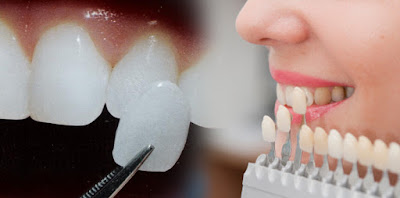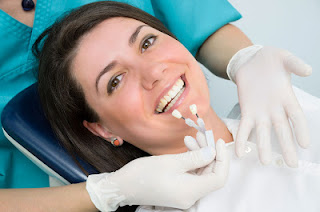Veneer Teeth Pennsylvania for a Most Natural Smile
A smile is part of your identity and if you have all even, perfect looking teeth, it only adds to your appeal. Cosmetic looks apart, having all your teeth in place helps in proper functioning of your mouth to chew and digest food materials. Therefore, proper care of your teeth, and taking care of chipped, broken or missing teeth, becomes extremely important and if you have been neglecting to do that, it is never too late to take action. Your dentist can help you get veneer teeth, Pennsylvania to replace all those damaged or missing pearly whites to get back your most natural smile and take care of any oral problems you might be facing.

What are Veneers?
Veneer teeth, Pennsylvania are actually thin shell like structures made of composite or porcelain material. They are made especially for use in the mouth and are normally attached to the façade side of a tooth. Veneers are usually made to fit a specific person’s tooth and cannot be mass produced.
What are Veneers Used for?
Any kind of oral condition, for example, a chipped tooth or a crooked tooth, or discoloured tooth, or even large gaps between teeth can be treated by applying veneers. They are a fairly recent advancement in dentistry but have gained a lot of popularity since dentists and dental laboratories have started using them. They are now an important aspect of cosmetic dentistry. Most commonly, veneers are used on the teeth you can see, that is, the anterior set of teeth. As already mentioned, different conditions like discolouration, position, chipping, misshapen teeth or improperly placed teeth are addressed by veneers.
Kinds of Veneers
Most dental laboratories and dentists are using two kinds of tooth veneers these days. One kind of veneer process is carried out by the dentist himself or herself in the dental clinic and this is known as the direct veneer process. In the indirect veneer process, the procedure starts in a dental clinic, where a dental expert makes an impression of the patients’ teeth and then sends that to a dental laboratory for the final processing.
Consequently, the first type, that is, the direct veneer is carried out in a single day itself, where a person goes on the dental chair, gets the veneer, and leaves with his or her natural smile on that very day. In contrast, in the indirect approach, since the impressions are sent to the laboratory, the restoration of the smile happens in the second appointment. The first appointment is entirely used to collect the teeth impressions.
The choice of which approach to go for depends on the materials that are used to create the veneers and the particular needs of a patient. Your dentist will discuss the two options with you, to find which one works best and proceed accordingly.

Costing
You might have guessed that indirect veneers cost more than the direct veneers. If you are asking yourself why, remember that the indirect veneer process involves the initial set up of the teeth in the dental clinic, implementing temporary coverage, and then having a laboratory prepare the veneer, which involves additional cost. The time and expense involved make indirect veneers costlier than the direct veneers.
There are some factors that influence how much a veneer is going to cost you:
-
Type of material used
-
Type of veneer
-
The location of treatment
-
Your dental insurance coverage
-
Fees for your dentist or oral expert and the laboratory charges
If you are considering treatment for your veneer teeth, Pennsylvania, make sure you talk to your dentist and find out all your options before making an informed choice.



Comments
Post a Comment